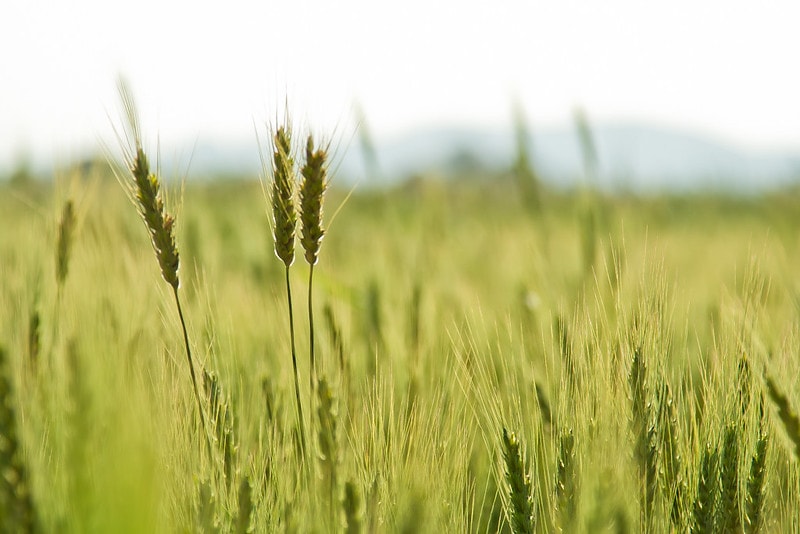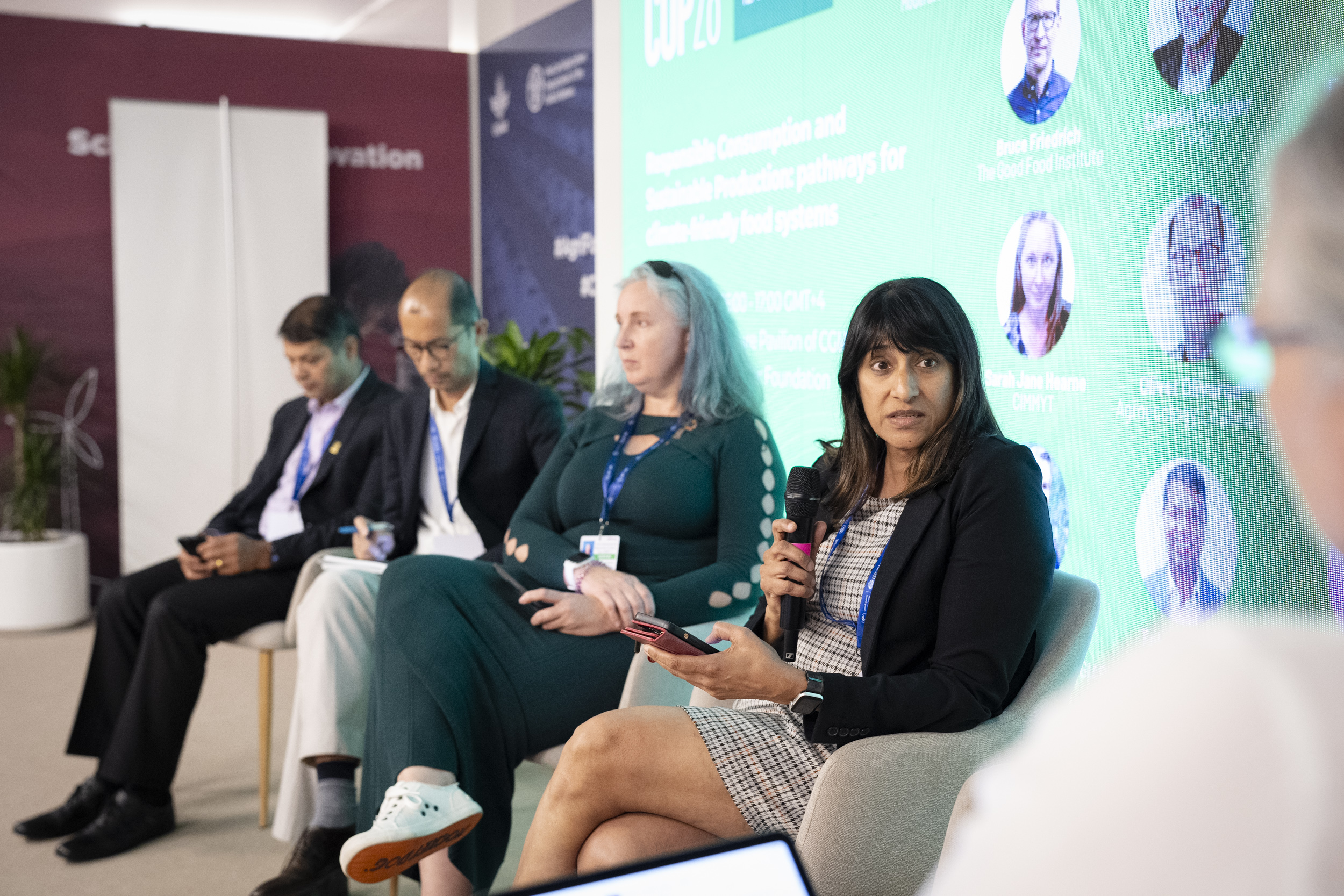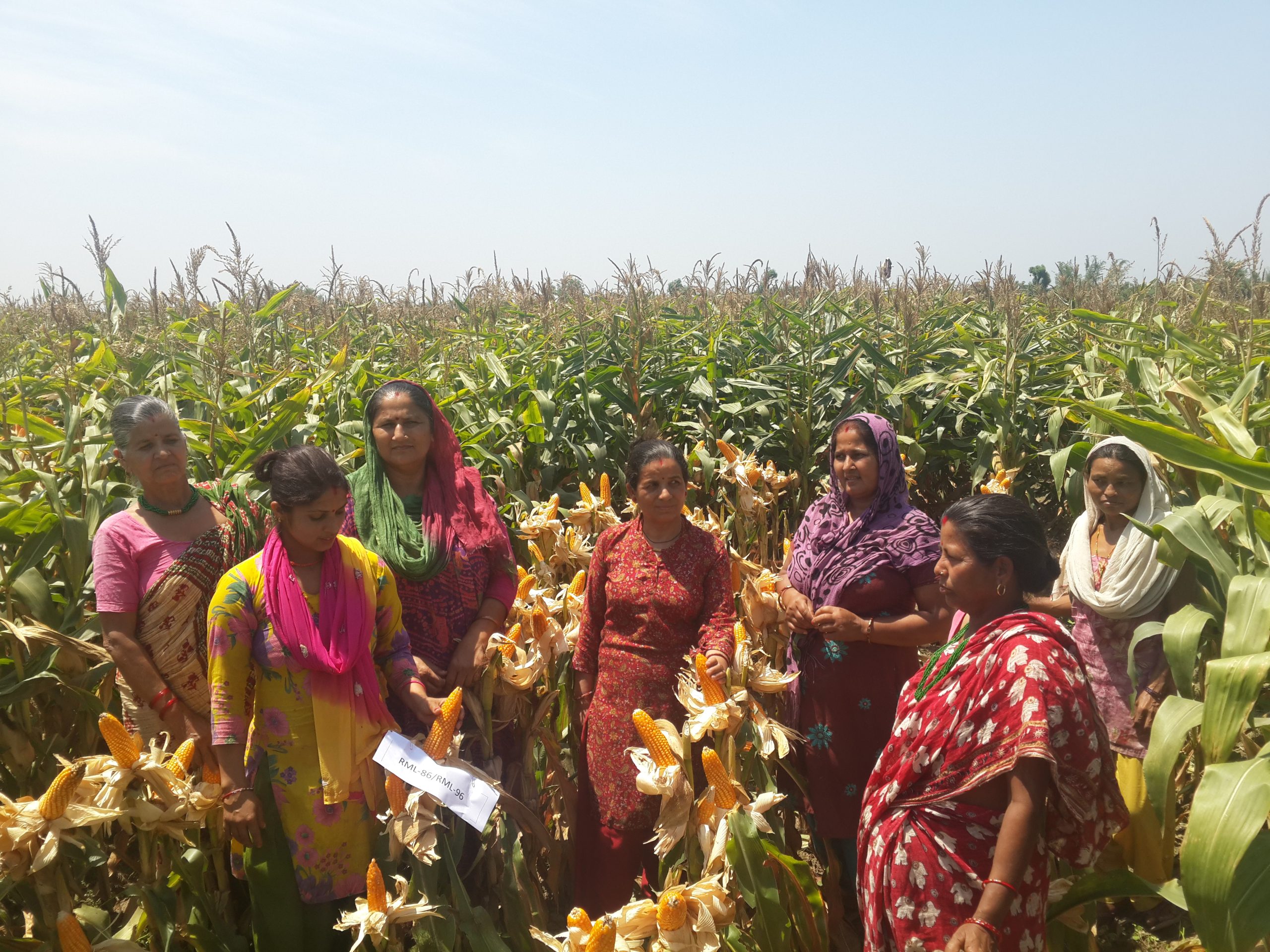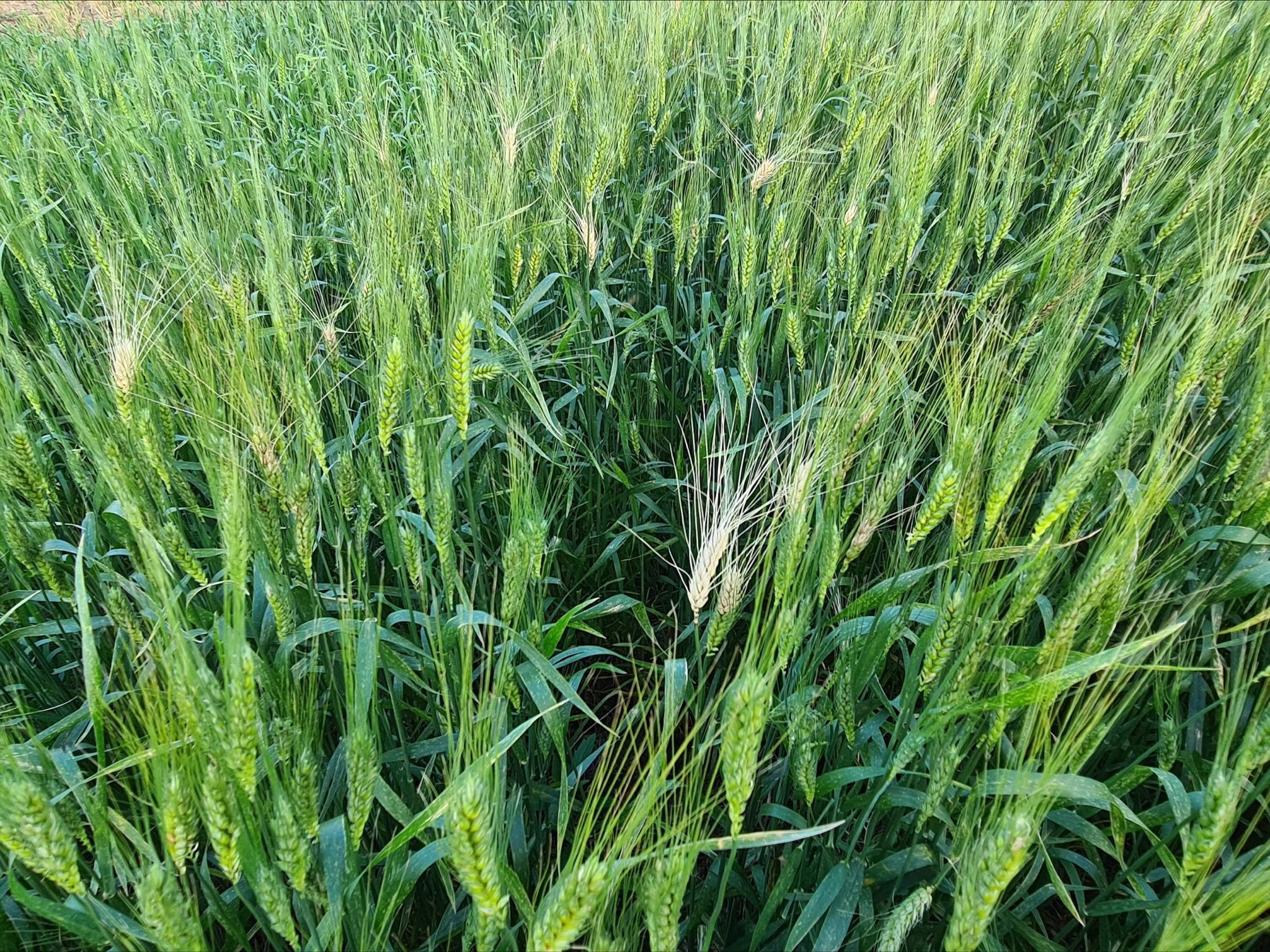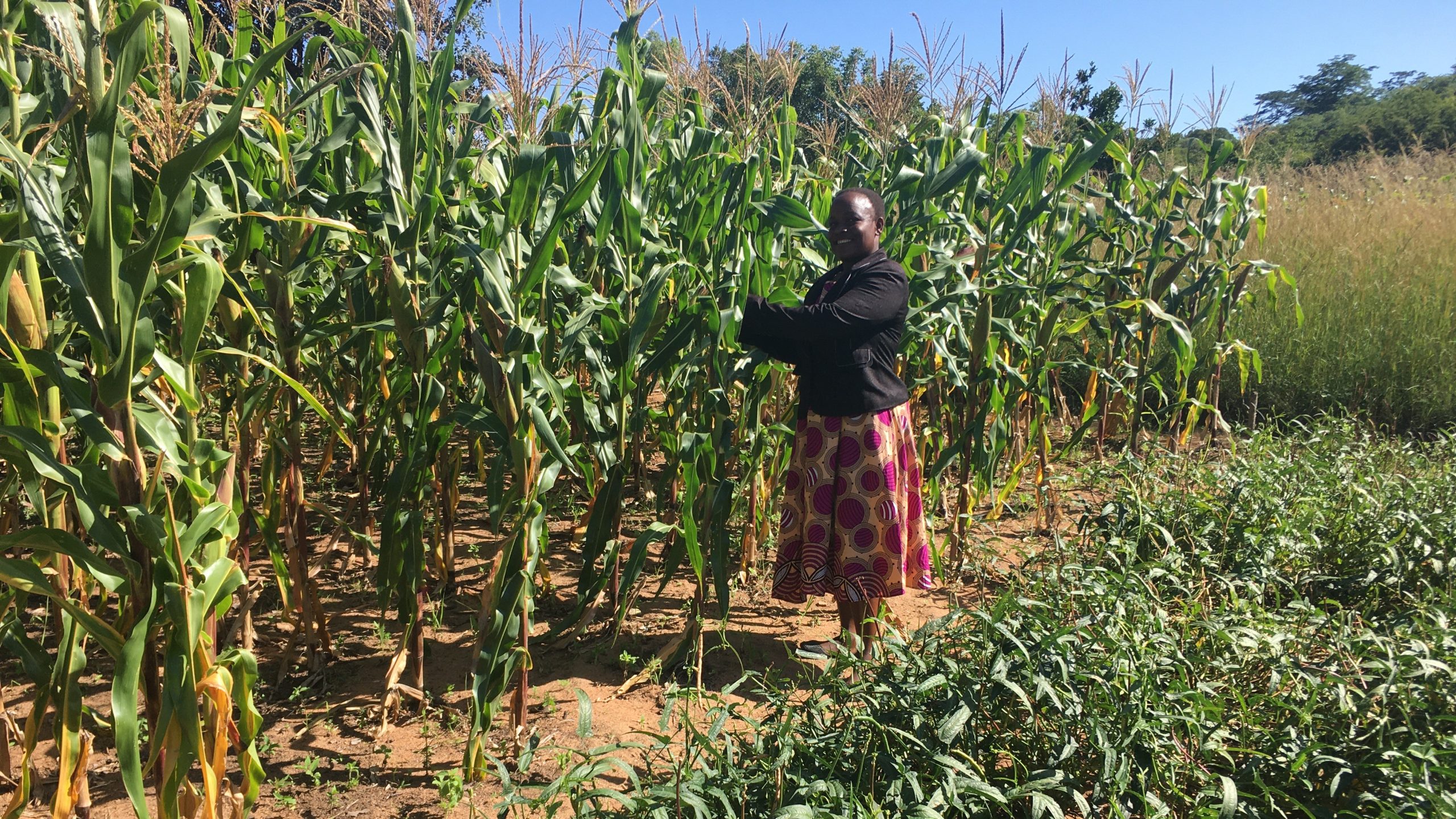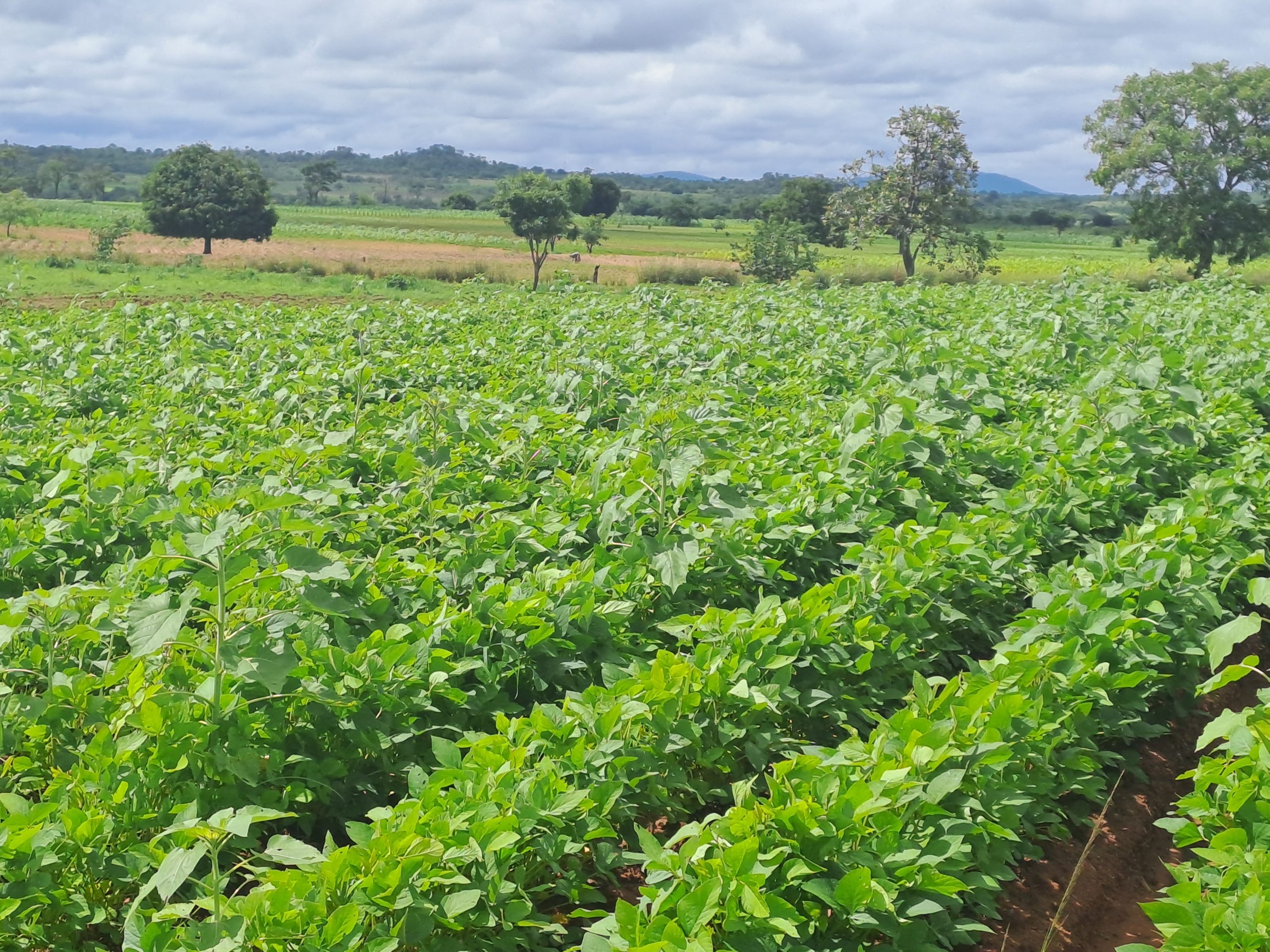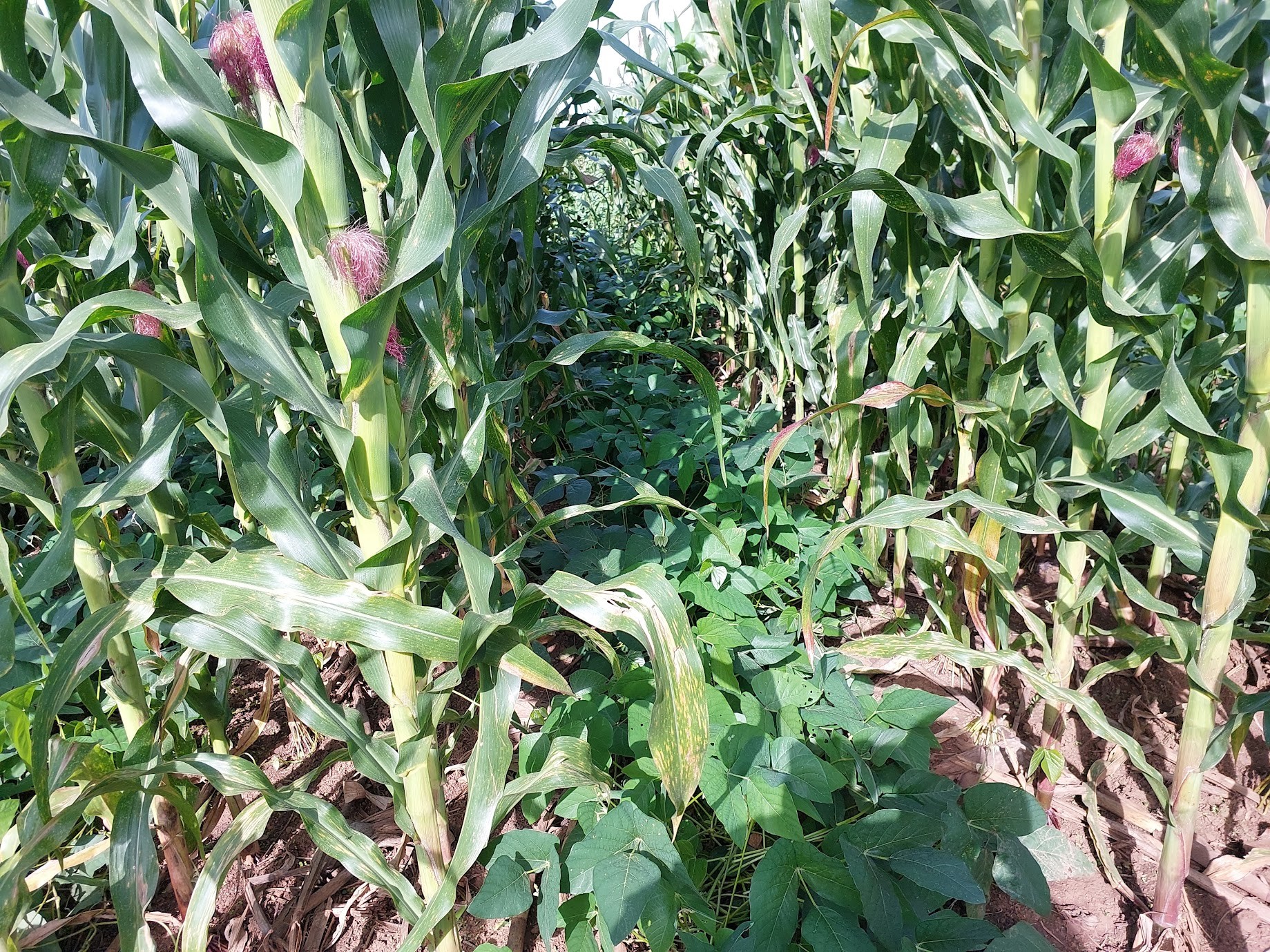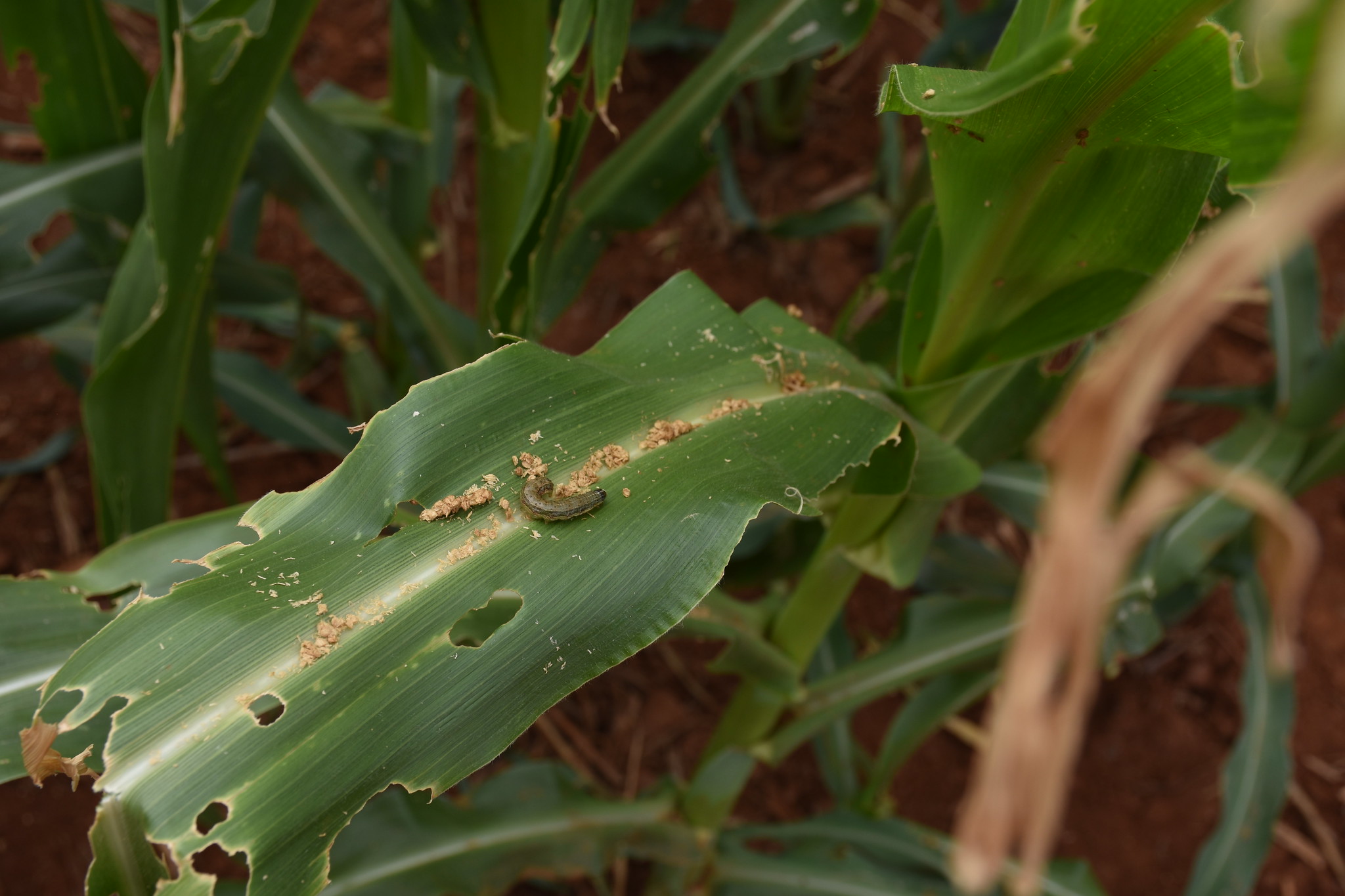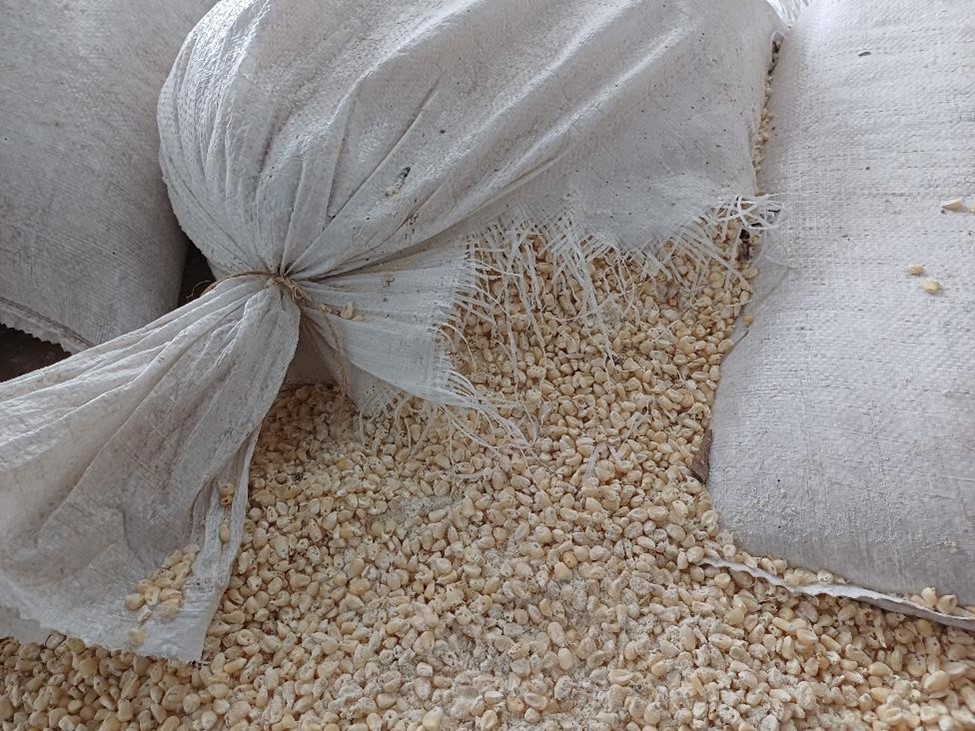Environmental health and biodiversity
The world needs better management of water, soil, nutrients, and biodiversity in crop, livestock, and fisheries systems, coupled with higher-order landscape considerations as well as circular economy and agroecological approaches.
CIMMYT and CGIAR use modern digital tools to bring together state-of-the-art Earth system observation and big data analysis to inform co-design of global solutions and national policies.
Our maize and wheat genebanks preserve the legacy of biodiversity, while breeders and researchers look at ways to reduce the environmental footprint of agriculture.
Ultimately, our work helps stay within planetary boundaries and limit water use, nutrient use, pollution, undesirable land use change, and biodiversity loss.
Enhancing wheat breeding efficiency in South Asia through early germplasm access
 Environmental health and biodiversity
Environmental health and biodiversity
Success stories witnessed in India, Pakistan, and Nepal underscore the transformative potential of this approach, offering a beacon of hope for agricultural communities in South Asia and beyond.
Advancing conservation agriculture
 Capacity development
Capacity development
A workshop brings together scientists to share the latest innovations in conservation agriculture to benefit smallholder farmers and reduce the effects of climate change on food production.
CIMMYT joins global efforts to curb greenhouse emissions and strengthen food systems
 Climate adaptation and mitigation
Climate adaptation and mitigation
CIMMYT promoted ways to lessen climate shocks, especially for smallholder farmers who inordinately suffer the effects of climate change, including rising temperatures and extended droughts.
Lennin Musundire
 Environmental health and biodiversity
Environmental health and biodiversity
USAid programme equips rural farmers
 Climate adaptation and mitigation
Climate adaptation and mitigation
Source: Zimbabwe Independent ()
Heat tolerant maize hybrids: a pursuit to strengthen food security in South Asia
 Climate adaptation and mitigation
Climate adaptation and mitigation
CIMMYT’s systematic and targeted breeding strategy in South Asia helped develop 20 high yielding and heat-stress tolerant maize hybrids. The ongoing efforts strengthens the livelihood of farm families who are highly vulnerable to climate change in the Asian tropics.
Wheat blast spread globally under climate change modeled for the first time
 Climate adaptation and mitigation
Climate adaptation and mitigation
Climate change: fungal disease endangers wheat production.
Soybean rust threatens soybean production in Malawi and Zambia
 Climate adaptation and mitigation
Climate adaptation and mitigation
Soybean production in sub-Saharan Africa is expected to grow by over 2% per annum to meet the increasing demand. However, as production increases, significant challenges caused by diseases, pests, declining soil fertility, and other abiotic factors remain.
Tackling fall armyworm with sustainable control practices
 Capacity development
Capacity development
Adopting sustainable and ecofriendly agricultural practices, sharing valuable knowledge, and providing farmers with effective tools and techniques can help mitigate the impact of fall armyworm in Zimbabwe.
Examining how insects spread toxic fungi
 Climate adaptation and mitigation
Climate adaptation and mitigation
CIMMYT leads international collaboration to monitor invasive pests attacking post-harvest crops and the propagation of toxic fungi.
Peter Setimela
 Capacity development
Capacity development
